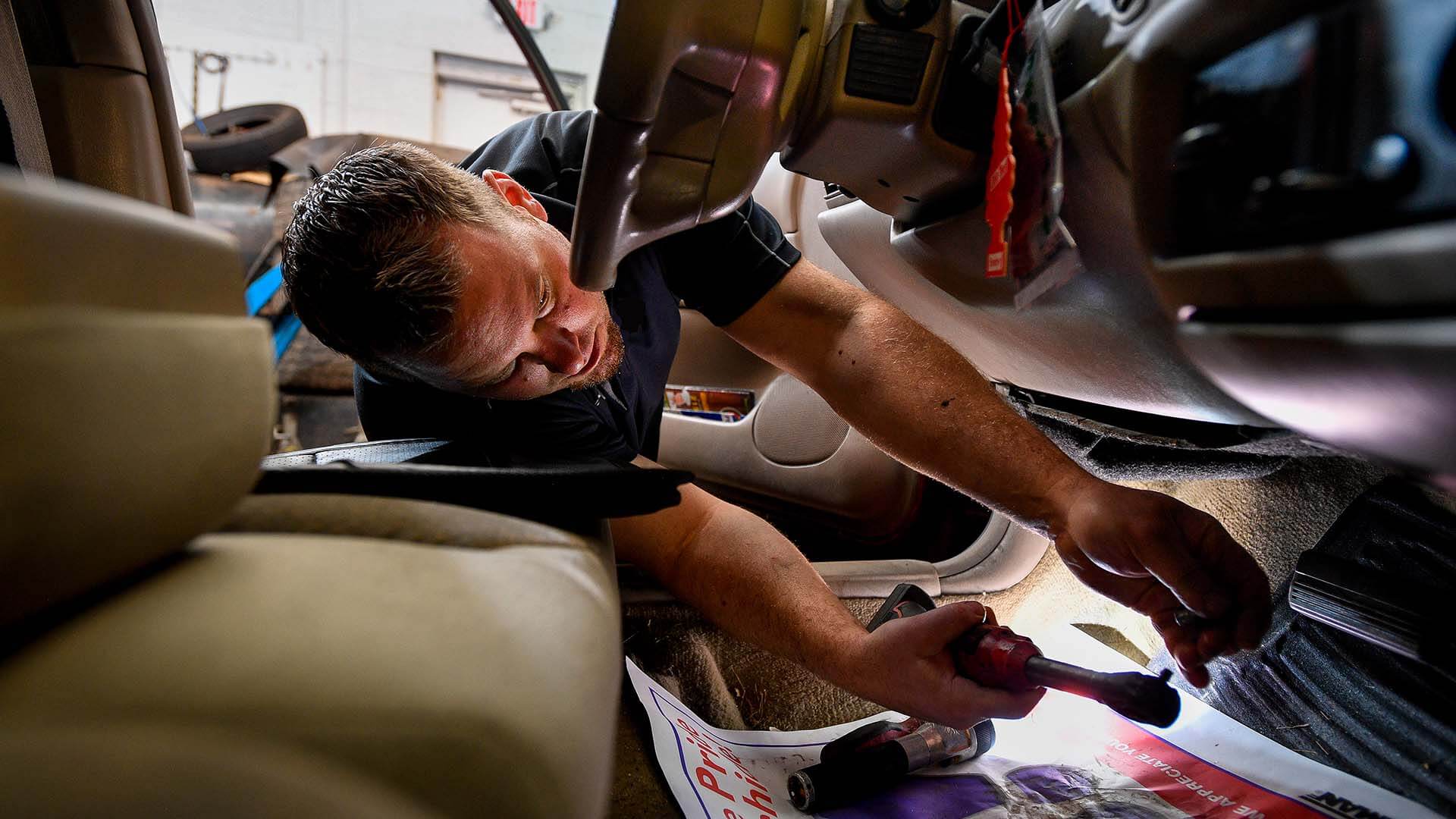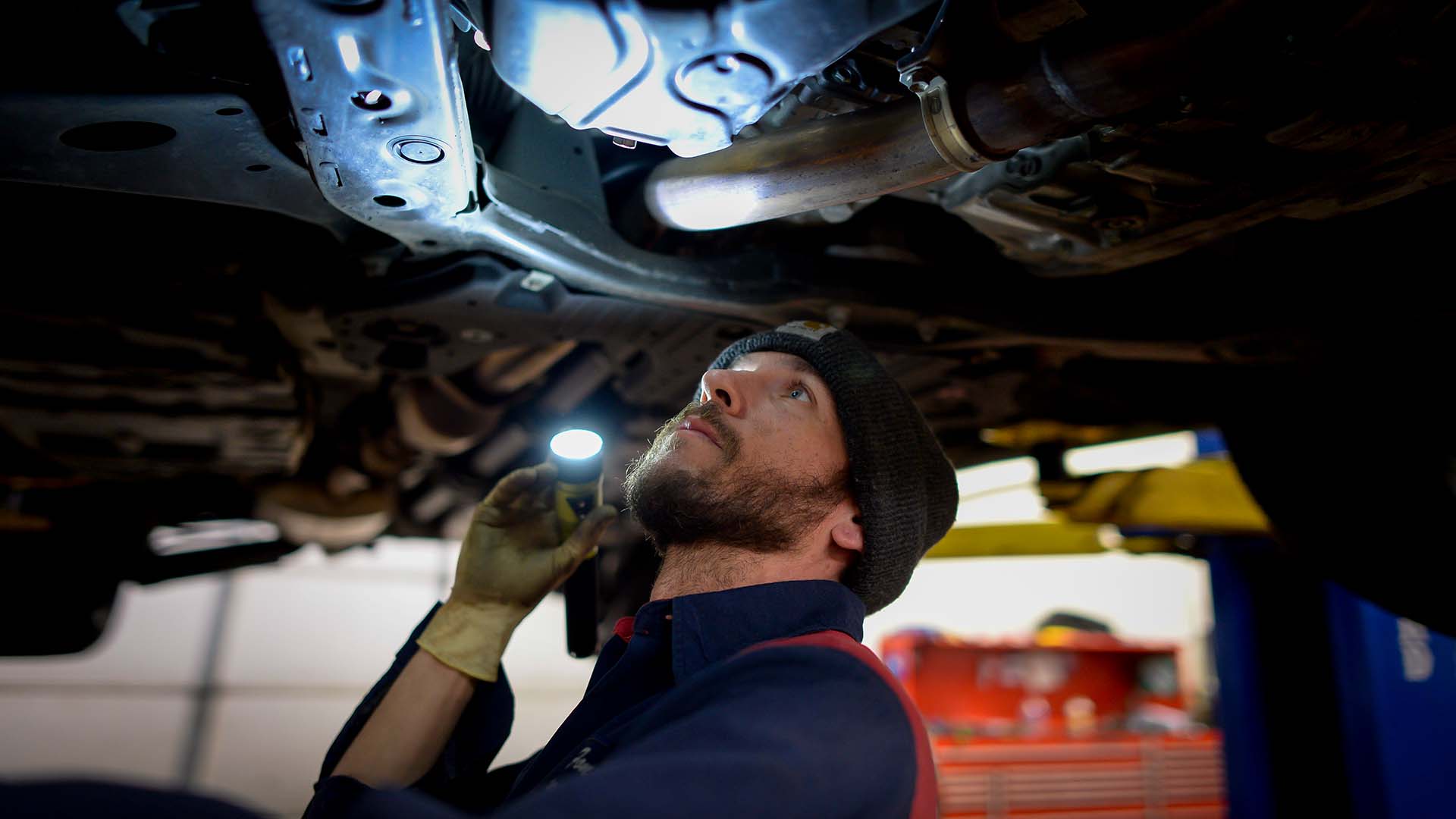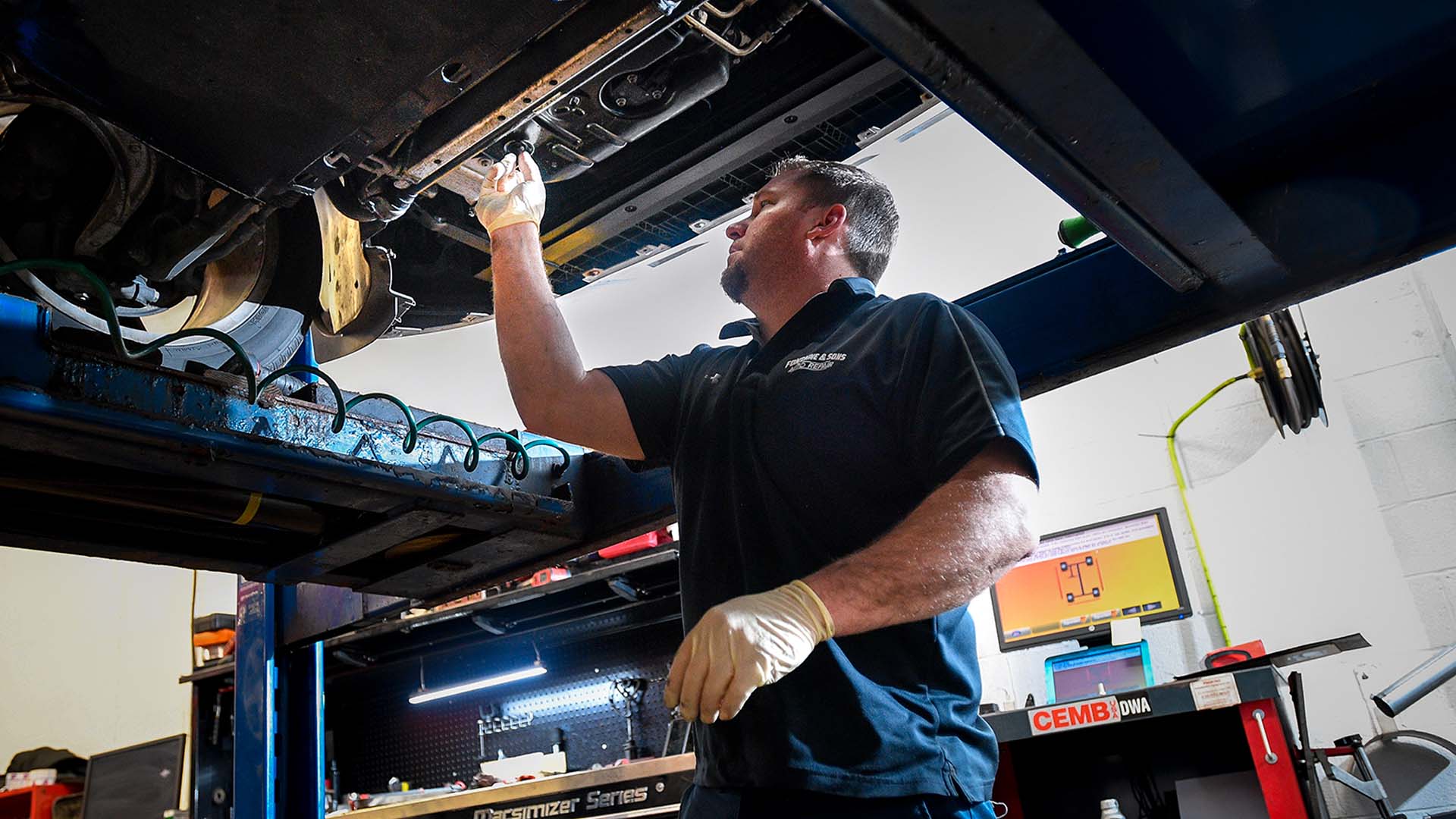“Drive it ‘til the wheels fall off” isn’t the safest decision. So when does it end?

The used car market it topsy-turvy these days; I don’t need to tell you that.
Between elevated used car values, incredibly strong demand, parts shortages, and a paucity of new vehicles, in a bid of what I can only assume is desperation to find a car, any car, I see people waiving pre-purchase inspections. I’ve seen several cars for service lately harboring huge issues that the buyers knew nothing about, so it seems like it might be topical to politely suggest PPIs as a revenue stream for your shop.
Odds are you’re intimately familiar with a standard PPI, but if your shop isn’t doing them, they generally look similar to the detailed inspection you probably already do on any car that passes through your shop. The premise here, of course, is for a buyer to have an independent assessment of a vehicle and accept or reject a seller’s description of the vehicle.

A good mechanic doing even cursory checks can usually prevent good customers from acquiring money pit vehicles. Photo by Mike Apice.
Fluids, filters, belts, and hoses are the opening gambit. From there, most will assess structural and mechanical soundness. Typically, techs will verify operation of all systems and confirm they’re functional. This is the spot to catch major issues—fluid leaks, heavy rust, or badly damaged running gear. Tires get the once-over, of course, and a test drive is in order.
What we discussed above goes for pretty much all cars. But there are times I’ll dig a bit deeper. If I have a well-heeled customer, I’m going to turn a sharper eye to the vehicle in question. If the vehicle is being purchased as a classic or weekend toy, I’m checking some different things out. Vehicle price matters, too—I’m going over a vehicle with a $5,000 asking price differently than if I’m going over one with another zero on the price.

Even repairs that have been done well don’t necessarily appear on vehicle reports—and the really bad jobs almost never do. Spotting a salvage special is often hard for average vehicle buyers. Photo by Mike Apice.
Personally, if I have access to service records, I try and take a look at them. I’m looking for big services that will be coming up, major repair jobs coming down the road. I take a pretty dim view of most vehicle reports that are being pushed right now. Most customers don’t realize they’re not comprehensive. I do a deep assessment of panel gaps and fit, and sniff around if anything looks fishy. Nothing says “thorough” to a customer like a tech who spots a bad panel gap or some orange peel, digs a little deeper, and finds a crashed car that hasn’t been repaired well.
Most folks I know who do PPIs usually won’t quote a value to a customer; they’ll simply tell them what it takes to get the vehicle roadworthy.
I personally will do both in the case it’s a rare or collectible vehicle, and I try to dig up some comps. Completed listings on ebay and Hagerty values for collectibles have both proven to be pretty accurate for me as of late. Most folks, however, are looking at more pedestrian vehicles, and a quick scan of asking prices on Autotrader can help give a lay of the land. In these situations, I usually tell a customer what I might do and what things I’d be considering as I negotiated the terms of the purchase.
Some folks want help in this arena and others do not, but simply providing a thorough lookover and the resultant three-box estimate duly arms a customer. With that information, he can determine whether or not the car is still one he wants and if so, what factors could affect the asking price.

Don’t miss revenue dollars. By letting your customers know you’re there to protect them, you can give them the confidence they need to know they’re getting a reliable set of wheels. Photo by Mike Apice.
As long as your customer understands you work with wrenches and not crystal balls, a PPI should help both of you. You get paid for your eagle eyes, and he has clear eyes walking into a vehicle deal. More importantly, you don’t have to be the bearer of bad news after the deal is consummated—a customer who tapped a purchase budget out and needs major service is not likely to be a happy one, even if you’re not at fault.
Especially with rising asking prices and a shortage of serviceable used cars, watching out for your customers in this way is a great way to build rapport and keep money coming into the cash drawer. It can either justify a high purchase price, or perhaps give a customer a bit of room to haggle, or take a vehicle off the table for purchase entirely. If you’ve got additional tips that work in your shop, don’t be shy; drop them in the comments section below.
The articles and other content contained on this site may contain links to third party websites. By clicking them, you consent to Dorman’s Website Use Agreement.
Participation in this forum is subject to Dorman’s Website Terms & Conditions. Please read our Comment Policy before commenting.